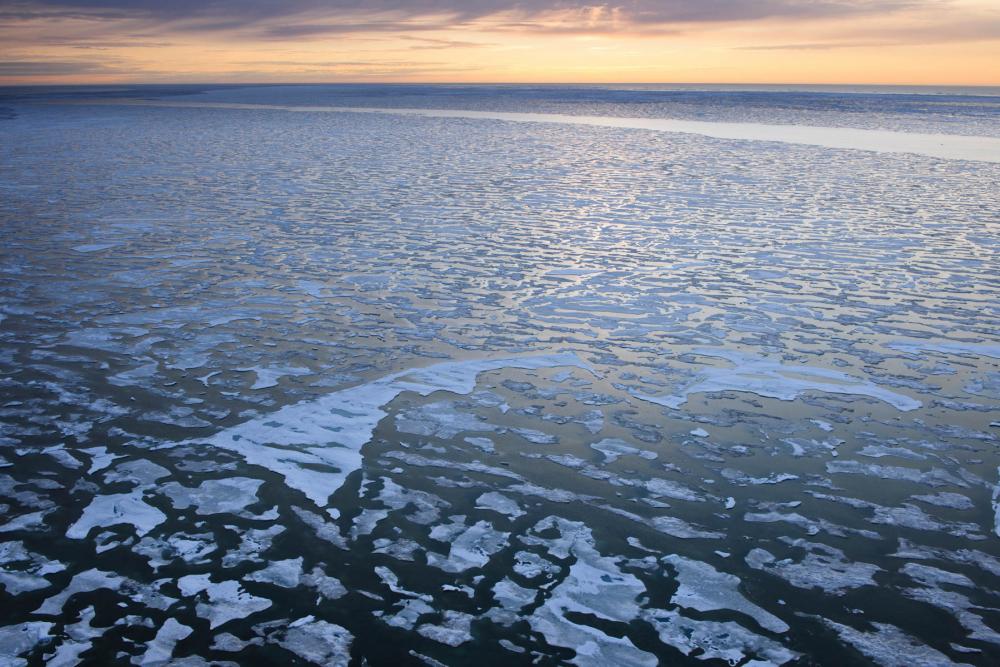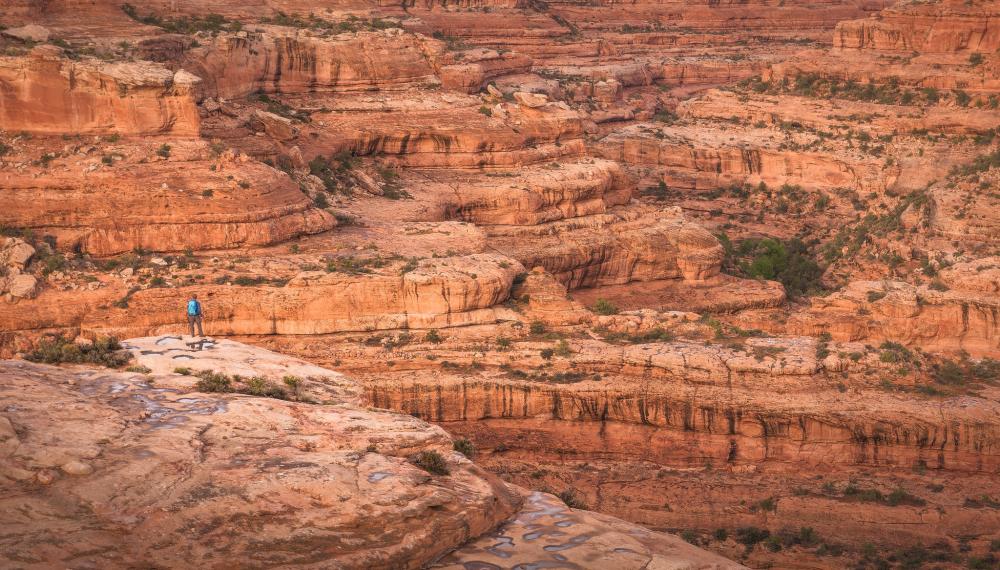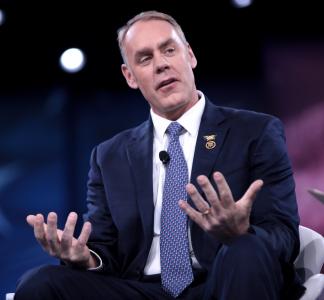Bernhardt report card confirms an oil lobbyist shouldn’t manage our public lands

David Bernhardt
Tami Heilemann, Department of the Interior
Failing grades for ethically suspect DC insider
UPDATE: David Bernhardt was confirmed as Interior secretary on April 11, 2019.
Learn more about his track record of doing favors for oil and gas interests.
In the coming weeks, the Senate is set to consider whether longtime fossil fuel lobbyist David Bernhardt should lead the Department of the Interior. One close look at his record should provide more than enough reason for lawmakers to reject the nomination.
Bernhardt would follow in disgraced ex-Interior Secretary Ryan Zinke Zinke’s disastrous footsteps. But unlike Zinke, Bernhardt is a consummate “behind-the-scenes” operative. If he’s famous for anything, it’s being so tangled in industry ties and other ethically problematic relationships that he has to carry a card in his wallet to help keep track of all his conflicts of interest.
Even if you don’t know his face, Bernhardt has been the one steering the agency’s policy decisions and shortsighted “energy dominance” agenda practically since the day he started. That means his fingerprints are on some of the Trump/Zinke regime’s most egregious anti-conservation policies, from the mad rush to roll back environmental safeguards to the unlawful cuts to Bears Ears and Grand Staircase-Escalante national monuments. He has been a big part of the effort to sell out our public lands and cater to energy, mining and other powerful special interests.
The secretary of the Interior is entrusted with managing hundreds of millions of acres of public lands and making sure Americans can enjoy them in a balanced, sustainable and responsible way. The person in that role can’t be an oil lobbyist doing favors for his former clients.
Below we take a look at some of the big issues that may face the next Interior secretary and give out grades showing Bernhardt is simply the wrong choice to deal with them.
Protecting the Arctic Refuge from drilling
GRADE: F
The coastal plain of the Arctic National Wildlife Refuge is one of America’s last truly wild landscapes, a fragile source of sustenance both for the indigenous Gwich’in people and populations of caribou and polar bears. And Bernhardt has a long history with the refuge—all of it bad.
Way back in 2001, when he worked in the George W. Bush administration, Bernhardt presided over an infamous fraudulent report that downplayed threats posed by drilling to caribou on the coastal plain. Later, he represented Alaska in the state’s bid to search for oil in the refuge. Since joining the Trump administration, he has led the shortsighted charge to open the landscape for drilling, reassuring his oil and gas industry buddies he plans to move “pretty quickly” even as the Interior Department seeks to hide gaps in its research about how such activity would hurt the refuge.

Arctic National Wildlife Refuge, Alaska
Mason Cummings, TWS
Sustaining the Land and Water Conservation Fund
GRADE: F
Bernhardt has paid lip-service to the idea of supporting the Land and Water Conservation Fund (LWCF), which pays for parks and public land improvements at no cost to taxpayers, calling it a “priority.” But his and the Trump administration’s actions speak much louder than those supportive words. Trump’s latest federal budget proposal called to virtually eliminate LWCF’s funding.
Keeping drilling away from our coastlines
GRADE: F
According to The New York Times, Bernhardt “did the heavy lifting” behind a Zinke plan that includes dozens of offshore oil and gas lease sales in the Arctic and Atlantic oceans and Gulf of Mexico between now and the year 2024—a plan that would expose over 90 percent of coastal waters in the outer continental shelf to drilling, worrying even some of Trump’s most steadfast allies in Congress. As a prelude to development in those areas, the Trump administration has also given five companies permission to conduct seismic surveys thought to be harmful to whales and other marine life.
Meanwhile, development in existing lease areas keeps rolling along, paying off handsomely for companies connected to Bernhardt. In 2017, just months after Bernhardt’s confirmation as deputy secretary, the energy company Eni Petroleum, which was included on Bernhardt’s famously long list of recusals, was awarded the first permit to drill in Arctic waters since 2015. During the partial shutdown of the federal government in 2018-19 alone, more than 70 offshore drilling permits were approved, most of them held by companies on the board of directors for the National Ocean Industries Association, a former Bernhardt client. Interior is also working to gut oil spill-prevention standards, which some Bernhardt clients consider overly burdensome. Under him, offshore drilling is ramping up and becoming more dangerous.

The Beaufort Sea, on the edge of the Arctic Ocean, Alaska
Florian Schulz
Saving greater sage-grouse and their habitat
GRADE: F
In 2015, a broad group that included scientists, ranchers and industry forged a plan to conserve greater sage-grouse in western states. It was one of the largest landscape conservation efforts in U.S. history, but oil and gas interests fiercely opposed it—including firms with ties to Bernhardt. Naturally, the acting secretary has been a catalyst behind the Trump administration decision to roll back these protections and push to allow drilling and mining in their wildlife-rich habitat.
An analysis from the Center for Western Priorities found that oil and gas interests connected to Bernhardt own more than 20 percent of leases in western sage-grouse habitat, and it was recently reported that the Independent Petroleum Association of America, a former lobbying client, even co-signed a letter of thanks to Bernhardt for rolling back sage-grouse protections and other conservation safeguards.

Greater sage-grouse
Bob Wick, BLM
Conserving threatened species
GRADE: F
Bernhardt has a long track record of work to weaken protections for wildlife and prioritize special interests over their wellbeing. As Interior’s solicitor general during the Bush administration, Bernhardt produced guidance to limit the use of the Endangered Species Act, hurting the government’s ability to conserve threatened plants and animals. In that capacity, he also provided legal advice to an Interior staffer who rejected or heavily edited scientists' advice on which species to recommend for protection. Between administrations, he served on the board of directors for the Center for Environmental Science Accuracy and Reliability, a group funded in part by the notorious “dark-money ATM” DonorsTrust that has fought endangered species protections for killer whales and other animals.
Sure enough, under Trump, Bernhardt has continued on the same track, working to aggressively cut protectionsunder the Endangered Species Act and even playing a key role in weakening Interior’s ability to prosecute energy companies that kill migratory birds. And underneath it all, Bernhardt and Trump’s “energy dominance” policies are wreaking havoc on wildlife habitat, including marring vital migration corridors for big game species pressured by the effects of climate change.
Preserving natural and cultural landmarks as national monuments
GRADE: F
Bernhardt reportedly played a key role in shrinking Bears Ears and Grand Staircase-Escalante national monuments, the signature anti-public lands action of the Trump administration, including a later-retracted proposal to sell public land cut from Grand Staircase-Escalante. He belongs to an unofficial political cohort that is decidedly hostile to the Antiquities Act of 1906, a law used by presidents from both parties to protect lands as national monuments.
There is ample reason to believe Bernhardt would support policies to hurt other monuments, too. For example, the Trump administration is pushing for a controversial project that would pump some 814 billion gallons of groundwater from under an inholding within Mojave Trails National Monument, potentially hurting public lands, wildlife and local communities. The company developing the project, Cadiz, is tied to Bernhardt’s old lobbying firm, which also owns shares in the company.

A hiker in Bears Ears National Monument, Utah
Mason Cummings, The Wilderness Society
Addressing climate change
GRADE: F
Bernhardt exemplifies the Trump administration’s denial-and-delay approach to climate change, with an added sheen of lawyerly evasiveness. Even as the body of scientific evidence grows showing the world is warming due to human activity, posing a dire threat to public lands, America and the world at large, Bernhardt has dissembled on whether he trusts the science, suggested he doesn’t have any obligation to address it and even gone so far as to erase internal memoranda and recommendations about preparing the U.S. for the threats. And of course, he has previously lobbied on behalf of a number of energy and mining companies to obstruct rules that cut pollution and increase oil and gas drilling.
Ethics, transparency and ‘good government’
GRADE: F
Like Zinke and many others in the Trump administration, Bernhardt seems allergic to honesty and transparency. Shortly after taking office as Zinke’s deputy, he wrote a memo that suggested weakening the National Environmental Policy Act, a key law that helps open up federal actions to public scrutiny (for example, notifying people and letting them weigh in if oil and gas development is slated for nearby land). Famously, Bernhardt’s own personal calendar is shrouded in mystery, echoing some of the controversies surrounding Zinke. Under their watch, the Department of the Interior even proposed to limit Freedom of Information Act requests (fittingly, that action came under cover of Trump’s partial shutdown of the federal government).
When it comes to ethically problematic relationships, Bernhardt sets a new standard of shadiness. A Center for American Progress report found that nearly 75 percent of the former clients and employers Bernhardt disclosed on his ethics forms have actively lobbied the Interior Department since the beginning of 2017, while the Center for Western Priorities reported that during his time as Zinke’s deputy, Interior moved forward with at least 19 policy actions requested or supported by his former clients.
David Bernhardt may be just as bad as Zinke at Interior (or worse)
Tami Heilemann, Department of the Interior
Interior Sec. Bernhardt pays lip service to protecting big game but his policies do the opposite
Jon Mullen
Zinke, Year One: 14 misdeeds that show why he's the worst Interior secretary ever
Gage Skidmore, flickr



